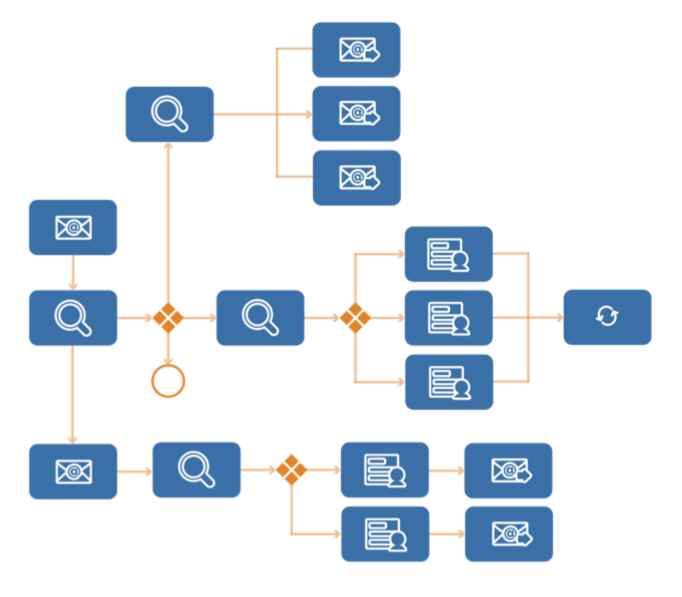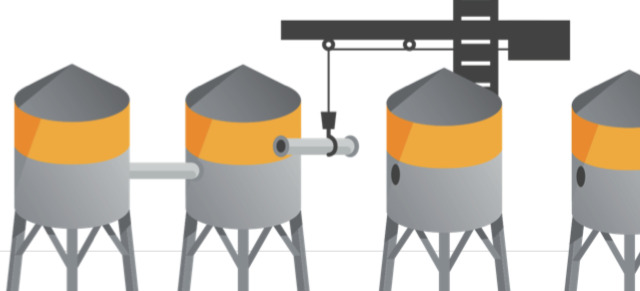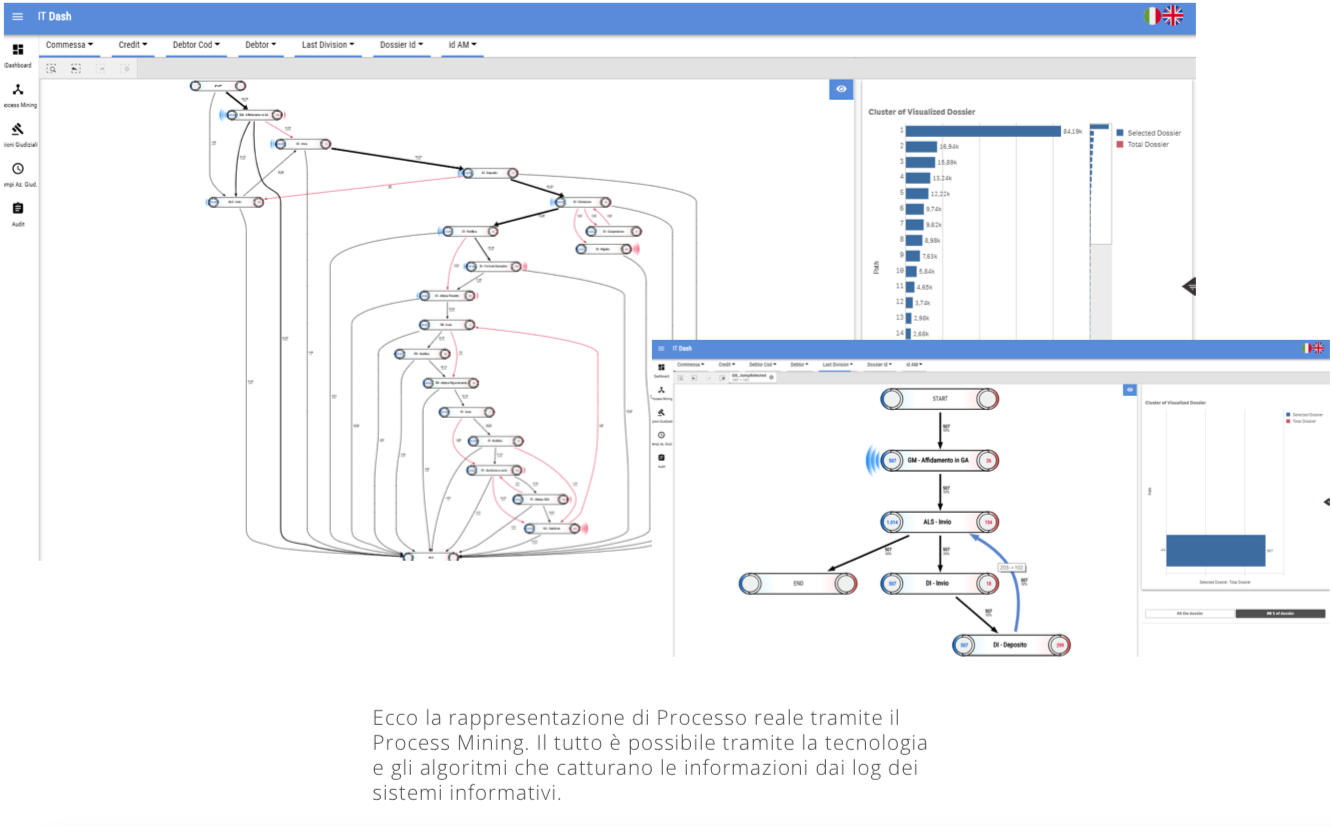The organic revolution of CRM processes
CRM is a system for managing relations between the company and its customers, its aim is to maintain the relations with the existing customers and to help creating connections with new and potential ones. The acronym CRM (Customer Relationship Management) introduces several concepts, it can be intended as a software useful to create a complete vision of your relationship with leads and customers, but also as a strategy adopted by the organization and even as customer oriented processes that take place in the company itself.
When it comes to CRM the meanings given to the acronym can be different: the operational CRM includes the different customer-oriented processes automation techniques; the analytical CRM is the set of procedures and tools useful to improve customer knowledge through the data extracted from the operational CRM, analyzing and studying both the data itself and customer behavior; collaborative CRM includes the methodologies integrated with the communication tools used to manage the contact points with the customer, e.g. phone calls, social media, e-mails etc. From this point of view, social networks have represented a further evolution, providing customers with immediacy and ease of contact with the company, which in turn is an opportunity to gain a better knowledge of its customer base.
Nowadays it is no longer enough to deal the relations with the customers not taking in account the surrounding environment, for this reason it is

considerably growing the number of companies engaged in the use of increasingly effective CRM systems to manage business processes and customer relationships. This is demonstrated by the 2018 CRM Observatory report, according to which 87% of the companies involved in the survey use a CRM software to support commercial processes, while 54% use a CRM to archive data and process management. The goal is to develop customer oriented business processes related that are effective and performing, in order to improve customer satisfaction and maximize the business performance.
The strategy of organic CRM processes allows the organization to operate in a lean, organic and natural way through the use of advanced technological systems. It may therefore be possible to integrate not only people but also the applications used in the different departments.
It is common to find, especially in older companies, the presence of departmental silos, that is a system of working in organizational units, this slows down most internal processes directly affecting the delicate relation with the customer, but not just that: complicated, long processes where people are not involved as multitudes but as individuals, inevitably cause a slowdown of productivity and therefore of the company’s ability to produce income.
Organic CRM system: how to use it at best
It is clear that when we talk about a CRM solution we refer first of all to a complete organic structure, which stops being divided into totally separate and independent departments. In this logic, customers must be placed at the center of the process, aiming at their satisfaction and making sure that there is real retention over time.
Company silos are the main problem to solve for any company that wants to develop a CRM project in the best way. The customer’s perception of the organization is that of an organic “unicum”: in fact is not aware of the various company departments and the large number of people who have to give their opinion on each choice. All this leads to important delays, especially if the customer in question requests changes or clarifications on the run. The key to solve this problem is to apply strategies that open and connect the silos, otherwise even a good CRM strategy will be affected by a static and crystallized system, where at best only the single department can benefit from the implemented solution.

The organic CRM system has, in fact, as its purpose the development of the interaction among the various company departments, aimed at improving the management of the relationship with customers and therefore at increasing productivity, “drilling” the aforementioned silos and contributing to create an organic organization.
The unconscious processes of the company: what they are and why they are fundamental
Within the company, however, there are the so-called “unconscious” processes, which are usually crystallized over time and make it more complicated to analyze the organization and therefore determine a valid CRM flow. It is also necessary to remember that the various software applications that operate within the departments are not always adequately integrated with the entire company IT system, with the risk that even the CRM software used will be accessible only to few people with managerial roles. Involving all figures and departments within an optimized CRM system and, consequently, within the software to manage its operating processes, allows not only to make people participate in the company but also to be able to analyze with extreme reliability the performance of each department and figures involved.
Conclusion: Process Mining for CRM systems
Therefore it becomes essential, if you want to adopt a new CRM system and have numerous and complicated processes, to use Process Mining, or an IT algorithm that allows you to perform an accurate mapping of the customer management processes used by the organization: an action perimeter is traced in which the application will be able to analyze the sequences of conditions (triggers) and actions (tasks) that determine the realization of a process. The software will massively analyze and will trace the organizational flow currently used: this is fundamental to understand what are the aspects to be improved and optimized within the processes.
Process Mining is a fundamental part of the analysis, as it makes it possible to represent business processes as they are performed in every day work life, in a quick and impartial way.

It is important, when you decide to adopt an organic CRM solution, to rely on a good CRM software, which allows you to acquire, store and analyze the data of all existing and potentialcustomers, suppliers, partners and business departments in an orderly and effective way, allowing each department to carry out daily operations (like sending a quote) in a simple way but within a context that can trace the exact path.
Many companies still rely on software implemented by the “big players” in the market, while few develop a customized in-house solution.
vtenext CRM (aggiungi link al sito) software was designed to be a ready-to-use system but, thanks to its wide configuration possibilities, it adapts perfectly to any company with the possibility of being designed on the specific needs of each process.
A CRM system that combines operation, management and analysis guarantees the company a greater business processes fluidity, indeed in this way they are constantly optimized in order to obtain the maximum productivity possible.
Nowadays a CRM system cannot be understood only as a software: it is the key to break down the “silos” and to the growth of every type of business.
On one hand, the need to adopt a CRM solution to manage customer interactions is now generally recognized, but on the other, a “culture” that takes into account a Customer Management processes logic to develop business projects and strategies, with the involvemente of all company areas, has not been developed yet.
Do you want to know more? Contact us!
During the years we’ve helped many companies digitizing their proceses
